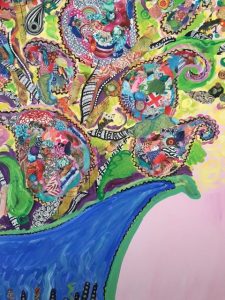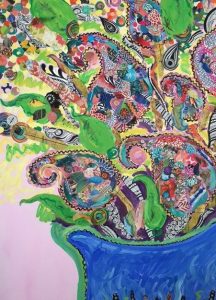I Write to Grow Up
I struggle to differentiate, as we all do. Leaving home is a lifelong process, as described by Murray Bowen, the father of family systems theory. But writing my novel, Wife Material, about the process of leaving home, catapulted me forward. That’s why I so recommend life-writing as part of trauma recovery. If I can create story around the invisible problems of fundamentalist Christian culture, I understand myself better and pull myself further out of that mindset.
And it makes me wonder: why do fundamentalist Christians have such a hard time letting their children grow up and leave home? Take Christian home-schooling for example (I have numerous lovely friends who home-school their children, so please, if you’re one of them, I can imagine circumstances in which home-school makes sense). Take “Christian College” for example (and again, if your kid goes to Harding or Evangel or Liberty, read this with one eye closed). Some of this may be true of your family – but perhaps not. We are so complex.
But to me, home-schooling and Christian college really show the gravitational pull of the fundamentalist family . . . the frightened family. Well-intentioned parents in fundie traditions fear the process of leaving home. They dread letting their kids out into the world where differentiation happens. Because differentiation can be scary.
What if they encounter drugs? Sex? Bad attitudes?
What if their faith gets diluted?
What if they develop nasty habits or vulgar language?
What if they stop believing in God?
The Vital Mess of Growing Up and Leaving Home
Fear of differentiation creates the need for schools like Waltham Academy, where my protagonist, Elizabeth Campbell, grew up. At Christian schools, children are sheltered from outside influences, thus restricting their thoughts to a prescribed area that’s been deemed appropriate or familiar. Fear of differentiation creates the need for home-school. Fear of differentiation creates depression and anxiety.
Typically, when you go off to school for the first time, you step into a foreign environment. You make friends with different types of backgrounds, orientations, and lifestyles. You see contrasts with your own family values and you start to question the rules and rituals with which you’re being raised. This is normal, healthy. This is how we leave home. Birthing is painful . . . and so is launching: uncomfortable, necessary, bloody, messy, and real.
When I left Christian college for a liberal (and feminist) state university environment, I made friends with Muslims and atheists and Jews, gay men, lesbians, and transgendered individuals, and people from other spots on the globe. This triggered my realization that my parents did not know everything . . . (nor should they have) which liberated my mind and allowed me to keep growing up. Growing past them.
If I’d stayed loyal to the churched educational system in which I was raised, I’d be dead now (at least mentally). I’d have compressed myself into a small intellectual space and blocked my mind from reaching out for more new information. Root bound. Enclosed. Strangled.
Every parent is limited. I know this like never before, raising a 15-year-old whose vocabulary and imagination surge ahead of mine and leave me feeling like a dusty old relic with my relational theology. But limits are normal. We don’t know everything. Our kids will know more than us. They’re supposed to, at some point. We grow beyond our parents’ abilities to imagine . . . and that is the stuff of this beautiful world.
At its base, Wife Material describes getting free to grow up.
We all desperately need to pull and scrape and claw our way to freedom so that we can leave behind our parents’ ideologies and grow into our fullest, brightest, wisest selves.
[dacta url=”http://www.amazon.com/Wife-Material-Novel-Misbehavior-Freedom-ebook/dp/B014VP2SXQ” text=”Read Wife Material”]


Like to Subscribe?
Get notified when Deborah shares new ideas, art, and creative health information for you.
You have Successfully Subscribed!
We respect your privacy. No information will be shared.